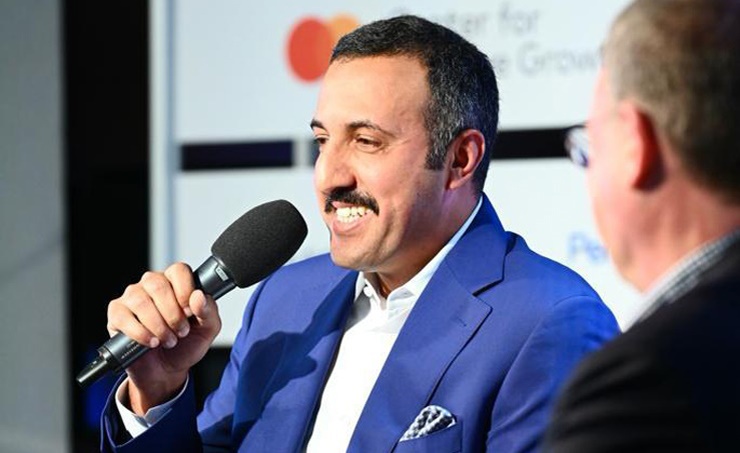Foreign Ministry Undersecretary o for Political Affairs, Chairman of the Board of Trustees of the Bahrain Center for Strategic, International and Energy Studies (Derasat), Dr. Shaikh Abdullah bin Ahmed Al Khalifa, affirmed the keenness of the Kingdom of Bahrain under the leadership of His Majesty King Hamad bin Isa Al Khalifa to devote the values of peace, dialogue and coexistence among peoples towards a stable and prosperous Middle East.
This came during his participation in the “Aspen” Security Forum Colorado, USA, from July 19-22, in the presence of a group of decision makers, senior officials of homeland security, intelligence, defense and foreign affairs, media leaders, and heads of multinational industrial and financial institutions in the world, to discuss the most prominent issues in global security and chart the paths of future international trends.
Addressing the session on developments in the Middle East, Dr. Shaikh Abdullah reviewed the royal vision for regional peace and security, which was highlighted by His Majesty the King before the ” Jeddah Security and Development Summit” in the Kingdom of Saudi Arabia, in the presence of US President Joe Biden and leaders of many Arab countries.
He noted HM the King’s affirmation Bahrain’s adoption of peace as an only option, and his call to unite efforts to stop direct interference in the internal affairs of countries, and work together for security, peace and prosperity for the benefit of the people of the region and the world.
He pointed out Bahrain’s keenness to strengthen the alliance and strategic partnership with the United States of America within the framework of the joint commitment to protecting the security of the Arabian Gulf, ensuring maritime navigation and combating terrorism.
He highlighted Bahrain’s standing as a major ally outside NATO and a security partner for the United States of America, and the expansion of the bilateral partnership to include economic, educational and cultural fields, in light of the success of the government headed by His Royal Highness Prince Salman bin Hamad Al Khalifa Prince Salman bin Hamad Al Khalifa, the Crown Prince and Prime Minister, and its comprehensive development achievements certified by international reports, and in line with Bahrain’s Economic Vision 2030.
He underlined cooperation agreements between a number of Arab countries and Israel reflect an advanced vision to consolidate the foundations of peace within the “win-win” equation, with the aim of overcoming common challenges and seizing available opportunities.
He expressed his hope that it will represent The Negev Forum”. He also expressed his hope that the Negev Forum, which Bahrain hosted the first meeting of its Coordinating Committee, would represent a new building block for establishing fruitful cooperation and real and sustainable coexistence, pointing out that working groups meet regularly throughout the year to advance initiatives to promote regional integration.
He added that the US President’s visit to the region was imposed by “realistic convictions”, which can be described as “resetting the compass of relations and correcting the course”, and showed that the United States is not immune to Middle East developments.
He highlighted decades-old Gulf-US alliance, stressing that the Arab Gulf region, and amid the events, crises and interactions that the Middle East is undergoing under the title “Challenge and Response”, has proven to be of geostrategic importance to the entire world, in light of the mutual influence between regional security and its global counterpart.
He called for concerted efforts to support the emergence of the “new region” and bring about a change in the strategic direction of the Middle East, by establishing economic partnerships and diverse and intertwined interests.
He underlined the pivotal role of information technology and innovation, to achieve economic recovery and sustainable development, as well as providing channels to absorb the ideas and energies of young people, and block the ideas and attempts of religious incitement, fanaticism and extremism in all its forms, so that the people of the region can enjoy peace, stressing that “making peace is the most difficult path, but it is the right path.”
Dr. Shaikh Abdullah concluded that consolidating regional peace and prosperity requires “collective investment in deterrence” against all those who try to tamper with the security and stability of the region and refuse peace, stressing the importance of security and strategic partnerships between allied and friendly countries as an urgent necessity to protect our destiny and the future of new generations and their rights to live in peace and prosperity.


